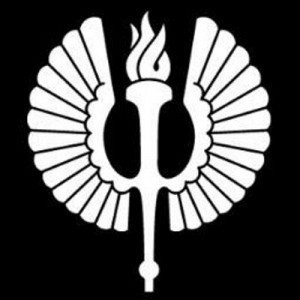Photos of university / #officialuom
Advertisement
The MA in Economic and Social History is a graduate-level introduction to current research-questioning in these fields. It is embedded in the disciplinary context of a large and vibrant grouping of historians, but teaches the appropriate use of economic and social theory in guiding research. The disciplinary embedding forces it to confront history in its untidy 'givenness', the theoretical training equips with the powerful effective analytical tools for investigating the history (though social-science historians also have a valuable outside reference-point for critiquing modern theory in the light of the views and experiences of that 'other country' of the past). Hopefully, this interplay between theory and history makes historical investigation come to life.
The MA is taught by a mix of research active scholars, with strengths in economics, social and cultural theory, as well as in historical methodologies, and with diverse strengths in non-British and British histories. It Is designed for students with little or no formal training in economics or the social sciences, but it is flexible enough to serve the needs of those with good theoretical background but less exposure to the history. It is recognized as a research-training degree by the Economic and Social Research Council (ESRC), and teaches skills highly applicable to the research-design and -management tasks of many modern graduate jobs, as well as to doctoral study.
Dissertation research in the programme is assisted by access to the best conglomeration of resources for researching economic and social history outside London. This includes the historical riches of the John Rylands University Library with its renowned 'Deansgate' special collections, the prestigious Manchester Central Library, the People's History Museum with its large labour-history archives, the Working Class Movement Library, the archives of the North-West Museum of Science and Industry, and the Barclays Bank archives, all in greater Manchester. Also easy to reach are the abundant records of the Cheshire and Lancashire Record Offices in Chester and Preston respectively, and of the National Maritime Museum in Liverpool.
Module details
The core research-training element, 'Research Issues in Economic and Social History' discusses the nature and current condition of economic and social history, key scholars in its intellectual pedigree, key issues in historical sociology and historical economics. The generic research-training course, 'Skills Awareness in Graduate Education', and the social-science research training in quantitative and qualitative methods are largely based on day workshops chosen from a menu which is adapted to student with little or no previous experience.
Among optional course units usually available are: 'Men. Money and Machinery: Discussing Modern Economic History'; 'Social and Cultural Upheaval in War and Peace: Russia, 1890-1950'; 'Key Issues in Migration History'; 'Methods, Themes and Approaches in Latin American History'; 'Early-Modern Imperialism'; 'English Provincial Towns 1700-1840'; appropriate courses in economics, sociology, social anthropology, in the University's Centre for the History of Science, Technology and Medicine, International Centre for Labour Studies, etc. are also available.
Want to improve your English level for admission?
Prepare for the program requirements with English Online by the British Council.
- ✔️ Flexible study schedule
- ✔️ Experienced teachers
- ✔️ Certificate upon completion
📘 Recommended for students with an IELTS level of 6.0 or below.











